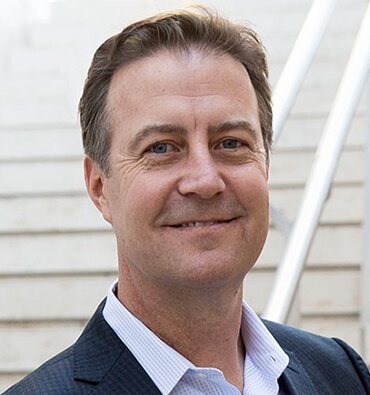The Best Ways to Grow Your Career Inside a Global Company | Chris Maxwell of Toyota
Featuring: Chris Maxwell, District Manager at Toyota North America
May 3, 2025

The Best Ways to Grow Your Career Inside a Global Company
Chris Maxwell didn’t begin his career with a rigid master plan. Instead, he focused on something more sustainable: momentum. Today, as District Manager at Toyota North America, Maxwell’s path spans engineering, product quality, product planning, and field sales operations. Each move wasn’t just about chasing titles — it was about staying in motion, learning, and adapting.
Inside a global company, forward movement isn’t always fast — but it is built to last. By focusing on growth and skill-building instead of chasing promotions, Maxwell created opportunities to evolve in ways that made his career both resilient and dynamic. For professionals looking to build a meaningful career inside a large company, the lesson is clear: adaptability and curiosity are often more valuable than a perfectly mapped path.
Pivoting and Progressing Without Losing Steam
Throughout his career, Maxwell developed a knack for recognizing when it was time to move on — not because he was unhappy, but because the pace of his learning had slowed.
Recognizing When It’s Time to Grow
"I've been in roles that I've been very content in, but another opportunity presented itself as a way for me to grow and learn more. That's what's pushed me to a new opportunity there. In other cases, I found that my growth had plateaued."
Rather than chasing constant change for its own sake, Maxwell focused on making intentional pivots that would keep him learning and stretching. For professionals inside a large organization, tuning into your own growth curve — and being willing to take a risk when it levels off — can be the difference between staying stagnant and accelerating.
How Chris Got Comfortable Being Uncomfortable
Stretch roles were a recurring theme throughout Maxwell’s career. Each time he transitioned into a new function, he resisted the pressure to "know everything" immediately. Instead, he led with curiosity.
“When you’re stepping into something new, absorb everything you can. Ask a lot of questions. You’re not going to be perfect right away — and if you’re a perfectionist, that can be a real challenge.”
Maxwell learned to give himself room to be a beginner again — listening, observing, and asking good questions before rushing to make decisions. That mindset helped him build credibility organically with new teams and made the steepest learning curves feel manageable.
When stepping into a new role or industry, embracing a “learner first” mindset can create faster momentum — and ultimately more sustainable success — rather than trying to lead with perfection from day one.
Big Company vs. Small Company: Two Different Roads to Success
One of Maxwell’s most valuable perspectives comes from understanding how the size of a company shapes the way careers develop.
Maxwell, who has lived and worked in multiple time zones within Toyota, has seen firsthand how patience, persistence, and smart networking create long-term growth inside a large organization.
“When there are more people, it’s going to take more to move the needle,” Maxwell reflects, “In a small company, you can wear all the hats right away.”
Small Companies: Fast Growth, Broader Roles
In a small company, you’re likely to take on a variety of roles quickly. Leadership opportunities can come earlier, but formal career paths and resources may be limited.
Large Companies: Bigger Opportunities, Longer Timelines
In a large company like Toyota, opportunities to specialize and move across departments are bigger. But patience and strategic networking are essential to stand out and build momentum.
The takeaway for professionals? Choose your environment thoughtfully — and set expectations that match the scale and pace of the organization you’re in.
Advocating for Yourself Without Being Overbearing
At Toyota, Maxwell learned that delivering results was essential — but not enough on its own. Especially in roles where natural visibility was limited, he had to take ownership of sharing his successes and challenges.
Building Visibility in a Dispersed Organization
“People don’t have visibility into what you’re doing day to day. You have to let everybody know — your successes and your struggles,” he explains.
The best self-advocacy is built on trust through transparency, being clear about contributions, and inviting collaboration around areas of improvement. For professionals in large, dispersed organizations, visibility isn’t a luxury — it’s a skill worth developing intentionally.
Maxwell’s Advice for Young Professionals
When reflecting on the most important lessons he’s learned, Maxwell keeps his advice simple and refreshingly honest: “Take work seriously — but don’t take yourself seriously.”
A career built on professionalism, hard work, and a genuine attitude is more sustainable — and ultimately more successful — than one driven by ego or rigid expectations.
Maxwell’s path shows that career momentum isn’t created through shortcuts or quick wins. It’s built steadily, with intention, humility, and a deep commitment to growth — even when the next step isn’t completely clear.
Like what you’re reading?
Never miss our latest insights when you subscribe to our newsletter.














